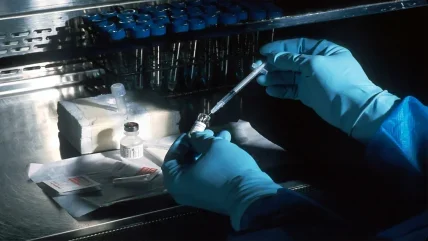
Innate Pharma announced that the US Food and Drug Administration (FDA) has granted breakthrough therapy designation (BTD) to lacutamab for the treatment of certain patients with Sézary syndrome (SS).
This designation is for treating adult patients with relapsed or refractory (r/r) Sézary syndrome who have failed at least two prior systemic therapies, including mogamulizumab.
Lacutamab is an anti-KIR3DL2 humanised antibody, currently in clinical trials for treating cutaneous T-cell lymphoma (CTCL) and peripheral T-cell lymphoma (PTCL).
The asset received FDA fast track designation in 2019 for relapsed or refractory Sézary syndrome and a PRIME designation from the European Medicines Agency (EMA) in 2020.
It has also secured orphan drug status in the European Union and the US for CTCL.
The FDA granted BTD based on positive Phase 1 and Phase 2 TELLOMAK study results.
Lacutamab showed promising efficacy and a favourable safety profile in heavily pretreated, post-mogamulizumab patients with advanced Sézary syndrome.
In March 2024, Innate Pharma decided to discontinue plans to assess lacutamab as a monotherapy for KIR3DL2-expressing relapsed or refractory PTCL after unfavourable results from a Phase 1b trial.
Innate Pharma chief medical officer Sonia Quaratino said: “There is a high unmet medical need for patients with Sézary syndrome. In this aggressive and rare form of cutaneous T-cell lymphoma, patients in advanced disease often experience very poor quality of life and are in strong need of new, targeted treatment options.
“The Breakthrough Therapy Designation underscores lacutamab’s potential to transform the patient’s care by achieving clinically meaningful efficacy and favourable safety profile compared to available therapies.”
Innate Pharma said that it is working with regulatory agencies on a confirmatory Phase 3 trial in CTCL and is actively seeking a partner.
The company’s portfolio includes ANKET drug candidates for multiple tumour types and IPH4502, a differentiated antibody-drug conjugate (ADC) for solid tumours. It also includes lacutamab for cutaneous T-cell and peripheral T-cell lymphomas, as well as monalizumab for non-small cell lung cancer in partnership with AstraZeneca.






